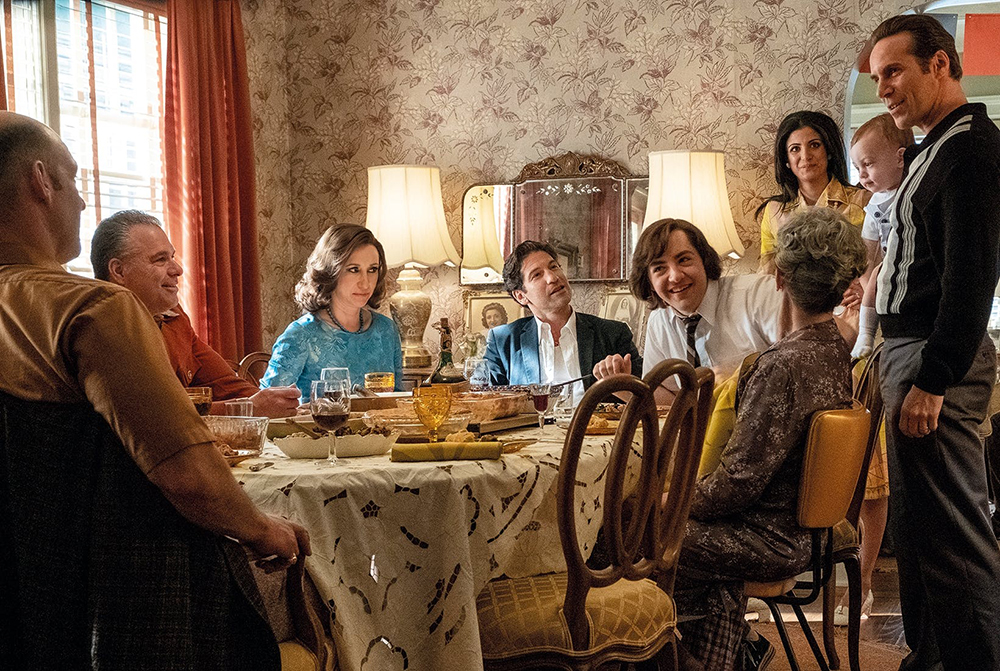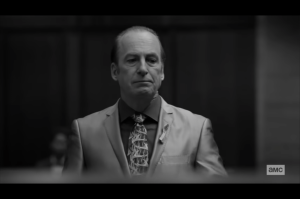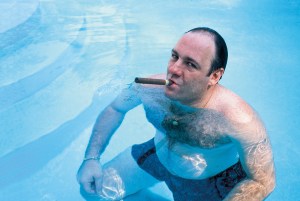So how exactly did Tony Soprano become a New Jersey mob boss? It’s 1967 and young Anthony is struggling to find meaning and purpose in his life. Luckily, his doting uncle Dickie Moltisanti (Alessandro Nivola) offers the love and support his feckless parents are incapable of giving. Unluckily, Moltisanti is not quite the role model he’d like to be.
Dickie complains about this on a visit to his uncle, Aldo ‘Hollywood Dick’ Moltisanti (Ray Liotta), who is languishing in jail for having killed a made man. Why is it, he wants to know, that even though he does conspicuously good works — bringing Aldo jazz records; coaching a baseball team of blind children (the ball makes a bleeping noise, in case you were wondering) — terrible things still keep happening to him? ‘You know that song “Favorite Things?”,’ replies Aldo. ‘Maybe some of the things you do ain’t God’s favorite.’
It’s a good point well made. Aldo acts as the film’s moral conscience, an unlikely father-confessor figure, and gets most of the best lines. Another, maybe the key, one is: ‘It’s the wanting. Pain comes from always wanting things.’ Again, he’s right because this is where everyone goes wrong: it’s their untrammeled desire — be it for a relative’s attractive young wife or for a new set of speakers or the cachet of turning up at an underage party laden with illicit beer your mobster uncle has procured — that causes otherwise potentially decent, law-abiding folk to become hideously unstuck.
This is about the battle for young Tony Soprano’s soul. We know who will win it in the end, but it doesn’t make the struggle any less exciting or involving. One of the great qualities of The Sopranos was that despite his hair-trigger temper, his utter ruthlessness and his noxious job, James Gandolfini’s Tony remained a largely likable, even sweet, vulnerable figure, a little boy lost in the role of villain. The late James’s son Michael (who plays the teenage Tony in the latter part of the film) captures this perfectly. He’s a nice kid, the kind whose long hair you might want affectionately to ruffle. With his high IQ and a bit of application, he might yet make something of his life.
But don’t worry — just because the film has a thoughtful, possibly Catholic-influenced moral schemata, playing on the fact that Moltisanti of course translates as ‘many saints’, doesn’t mean there’s not plenty of the dumb, gratuitous ultra-violence we’ve come to expect from mob drama. There are shoot-outs with shotguns, murders by brain-bashing and drowning, straightforward back-of-the-head hit jobs, and a particularly revolting torture scene involving the imaginative application of that machine garages use to tighten the nuts on car wheels.
There are also lots of pleasing in-jokes for Sopranos fans. When baby Christopher Moltisanti appears on the scene, he mysteriously bursts into tears on seeing Anthony. A wise grandmother figure observes sagely that newborn babies are privy to visions of their future. Indeed (spoiler alert if you haven’t seen the TV series): in season six, Tony will end up suffocating his troubled, drug-addled nephew to death. There’s also a scene with a kindly, concerned headteacher at Anthony’s school, which clearly prefigures his chats with his psychiatrist Dr Melfi.
And the casting is perfect. All the characters — Livia, Uncle Junior, Paulie, Silvio etc. — look and act the very spit of their older versions in the TV series. Director Alan Taylor and writers David Chase and Lawrence Konner had a lot of expectations from diehard fans riding on this prequel: they’ve delivered in spades.
This article was originally published in The Spectator’s UK magazine. Subscribe to the World edition here.

















